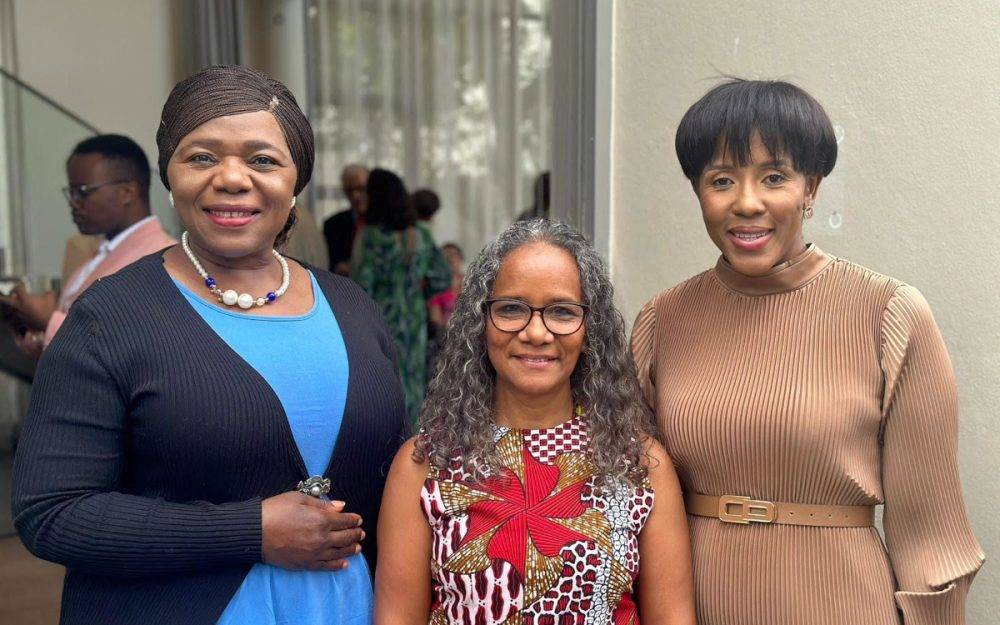Reproductive health, empowerment and the labour market are the main areas of focus
A panel discussion titled Working to Materialise African Women’s Agency took place on 4 April 2024 at the Residence of Maria del Rosario Mina Rojas of Colombia. This was a joint initiative between Ayşegül Kandaş of the Embassy of Turkey and the Embassy of Colombia.
Speakers for the discussion were Professor Thulisile Madonsela, Director of the Centre for Social Justice in the faculty of Law at Stellenbosch University and the Law Trust Research Chair Professor of Law in Social Justice Studies; Diana Sierra, CEO and founder of Be Girl INC; Princess Tshepi Motloung, Managing Director of Naledi Ya Tshepi Business Consulting; Advocate Mtho Xulu, President of the South African Chamber of Commerce and Industry in South Africa; and Siya Xuza, founder and Managing Director of Galactic Energy Ventures. Mohamed Cassim moderated the discussion.
Globally, women are exposed to multiple forms of violence due to the tremendous gender disparity at social and economic levels. The levels of inequity and inequality suffered by women are a crisis that has led to an accelerated increase in various forms of violence and violations of their fundamental rights. In a context where vast sectors of the global population are forced to live in multidimensional poverty, we know that women, comprising half of the global population, are the most vulnerable. It is expected that by 2030 the poverty gap between men and women will increase significantly, keeping women as the majority of the world’s extreme poor.

South Africa, and many developing countries of the Global South share similar challenges in achieving equality and equity for women. The female population in South Africa is above 50%, with high percentages as heads of household (44.2%), and greater trends towards impoverishment (40% more than their male counterparts1), despite being better qualified (13.2% of women had tertiary qualifications compared to 11.2% of men).
From the National Constitution to the National Sustainable Development Plan 2063, South Africa has numerous policies striving to create better living conditions and to achieve gender equality for women. However, as is also the case in many developing countries, much remains on paper, with few results. At the same time, cooperation from the local, private and international sectors as well as philanthropy have made important contributions and innumerable individual enterprises and innovative endeavours strive to make a difference. Areas such reproductive health, empowerment, and the labour market are the main focus of policies and efforts looking to support and enhance African women’s agency and wellbeing in order to close the inequality gaps.
The five distinguished panellists shared their experiences and expertise and some successful accounts to inspire and incentivise members of the audience. The event provided an opportunity to identify contributing actors and actions towards African women’s empowerment and wellbeing.
The evening was rounded off with an outstanding performance by soprano Hlumelo Ledwaba.